- Learning time
- 40 minutes
- First play time
- 90 minutes
Imperial Settlers
Designed by: Ignacy Trzewiczek
Imperial Settlers pitches the players against each other as competing empires – or factions: Romans, Barbarians, Egyptians and Japanese all strive to develop their empire, and occasionally pillage from each other as well.
Each player takes a small board showing which Empire they are playing. The board is divided into thirds: Production, Feature, and Action. During the game, you’ll be playing cards to one of these sections and increasing the power of your faction by doing so. Players deal themselves two cards from their faction deck and two from the common deck: every faction has it’s own deck of cards, and the reason for this will become clear shortly. At the start of each of the five rounds of the game, several common cards are dealt and players add one card to their hand. Then play begins.
Every round begins with all players receiving goods from their production: each faction gets a bunch of stuff to start with (people, gold, stone, wood, food, raze tokens) and then players take turns to play a card, which represent buildings. Every card has a cost: you need to pay resources from your hand to build it (gold is a wild card, and two people can be traded in for one of a resource). The cards match the three sections of your empire: production will increase your production in subsequent rounds, and hence give you more building opportunities. Feature cards aid development: they’re an every time you do X, get Y type of card. And action cards allow you to do all manner of things; from sacrificing resources for points to stealing resources from the other players.
The raze tokens bring a combative element to Imperial Settlers. You can use them to raze (i.e. lose) a card from your hand, and get some resources in return. But you can also – if you have two raze tokens – raze a card another player has built into their faction. This is where the strength of each player’s faction deck comes into play as well: the cards are harder to build (often asking you to sacrifice and already built building) but they are impervious to attack from the other players (with the exception of the Japanese faction – more below). Common cards are built to the right of your board, and bespoke cards to the left.
Finally, each faction has a different deck of cards that demand different resources to build them, so playing as different factions gives a different experience of the game. Factions also have a particular special power: the Japanese, for instance, can make their buildings harder to raze during a round by placing people on them as guards. The Romans are good fighters. The Egyptians are wealthy, and so on.
After everyone has passed, the round ends. Points are scored during play by using action cards, and at the end of the fifth round players total the value of their buildings they have built – most points: wins!
The guru's verdict
-
Take That!
Take That!
Don't let that box art fool you - plenty of room for Take That here, with players able to harpoon each other at frustratingly perfect moments...
-
Fidget Factor!
Fidget Factor!
With familiarity, reasonably low. Be prepared for a first play of head-scratching though.
-
Brain Burn!
Brain Burn!
Imperial Settlers is an engine-builder: you're looking to find ways to combine your cards so they work together like a well-oiled machine.
-
Again Again!
Again Again!
Lots of variety in the cards, and strategy too: go for those easy-to-build common cards, and risk attack? Or spend time building your bespoke buildings...

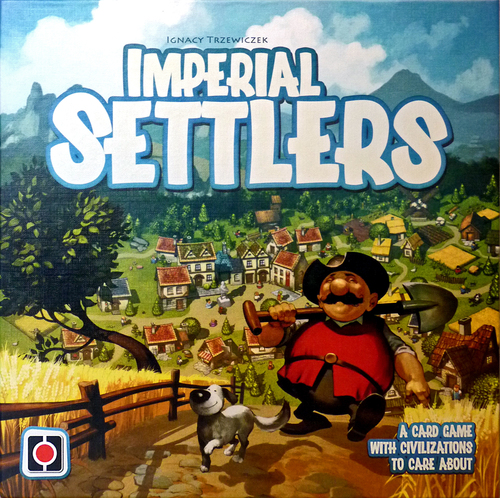
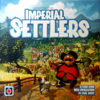
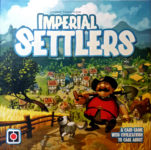
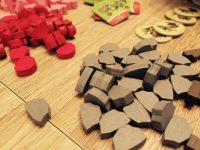
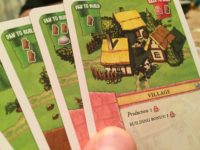
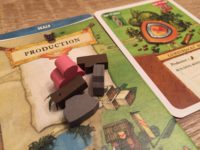
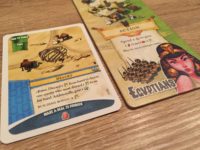
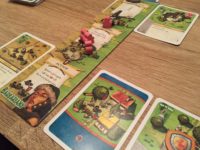
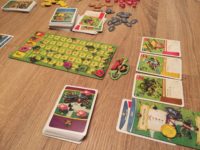


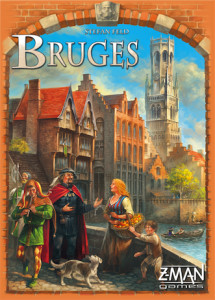
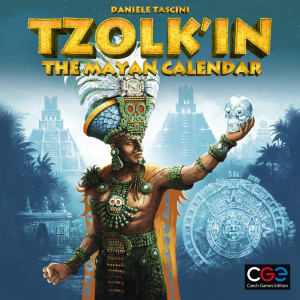
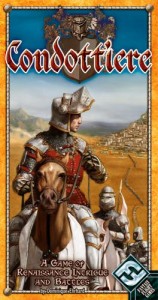
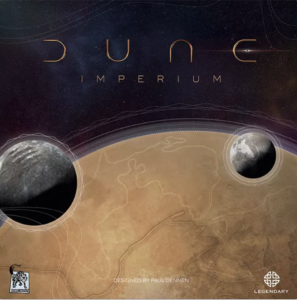
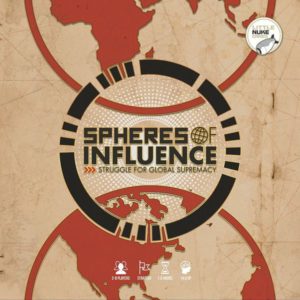
Sam says
Imperial Settlers isn't a massively immersive game in terms of theme: there's no board, and nothing to track your progress outside of the scoretrack itself: no map, no pieces, just the cards. If you're after a tactile experience you might be better looking at the even-more puzzly Wallenstein or the very thematic Memoir 44. But: if you enjoy the challenge of making the disparate cards come together to work in your favour - AND the feistiness the raze tokens (and certain cards) allow you, then Imperial Settlers could be big hit.